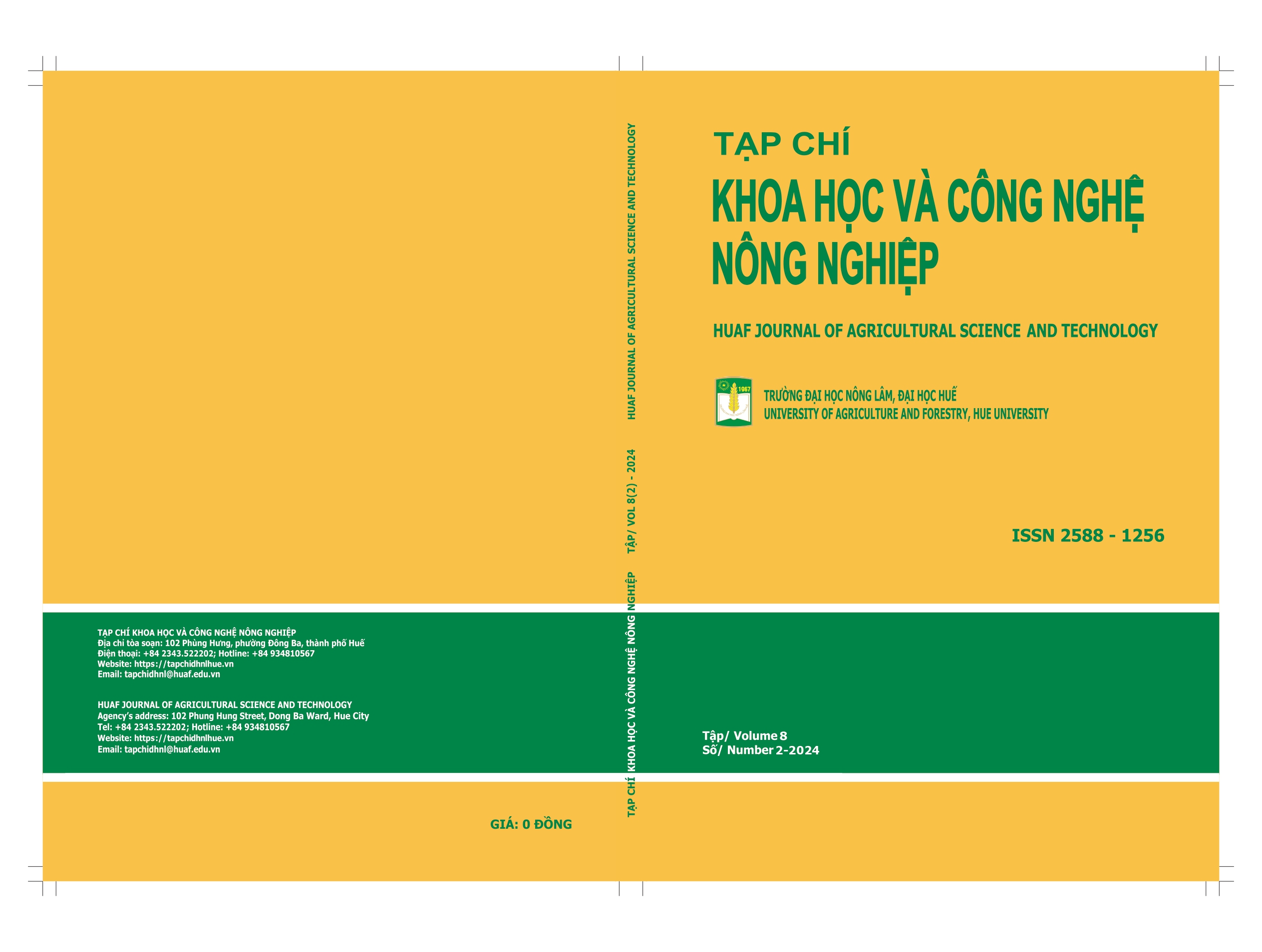##plugins.themes.huaf_theme.article.main##
Abstract
This study assesses the effects of replacing fishmeal with black soldier fly larvae in the diet on some immune parameters of Thai frogs (Rana rugosa). Experimental diets were formulated in which fishmeal was partially replaced by black soldier fly larvae at 0% (NT0), 10% (NT 10), 20% (NT 20), 30% (NT 30), and 40% (NT 40). A total of 3,600 frogs were randomly placed in 15 enclosed mesh cages (9 m3/cage), equivalent to 240 frogs/cage. Frog blood samples were collected on days 1, 30, and 60 of the experiment to determine erythrocyte count, total leukocyte count, and lysozyme activity in the serum. After 60 days of the experiment, the erythrocyte count in Thai frogs ranged from 1.1 x 106 cells/mm3 to 1.37 x 106cells/mm3, with the highest count observed in NT 20 (1.37 x 103 cells/mm3). The total leukocyte count in Thai frogs across treatments ranged from 3.4 x 104 cells/mm3 to 3.62 x 104 cells/mm3. Futhermore, after 60 days, the total leukocyte count in the blood of Thai bullfrogs in the NT 0 and NT 10 treatments were 3.6 x 104 cells/mm3 and 3.62 x 104 cells/mm3, respectively, significantly higher (p<0.05) than the substitute treatments replacing fish meal with black soldier fly larvae meal at rates of 20%, 30%, and 40%. Serum lysozyme activity varied from 364 to 594 U/min/mg. In conclusion, the findings of the study indicate that substituting fishmeal with black soldier fly larvae in the frog diet has no effects on the natural immune parameters of Thai frogs.

